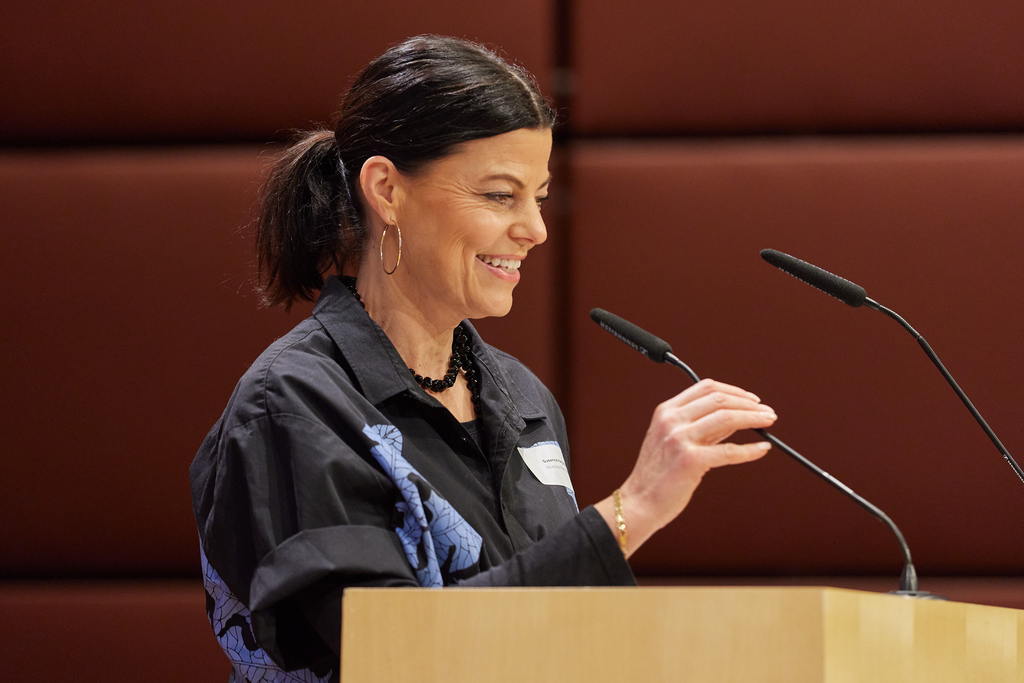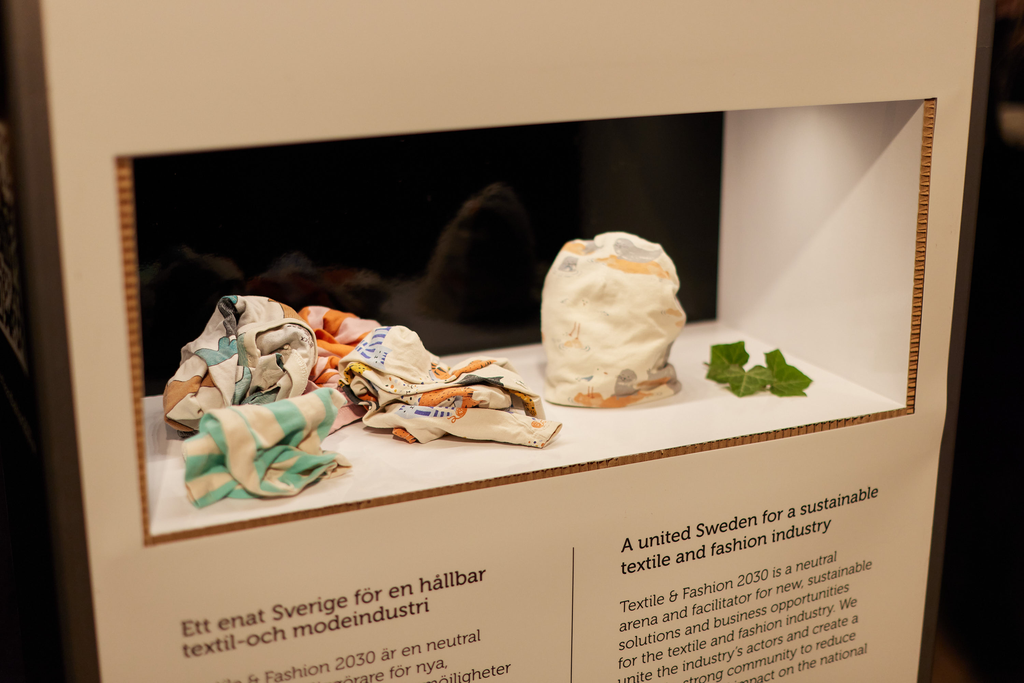Science Park Borås inspires the fashion of the future
What are the challenges for future fashion and is it possible to approach a circular value chain? Science Park Borås shared knowledge and good examples during Berlin Fashion Week to inspire companies and designers to participate in the transformation of the fashion industry.
On 5 February, Berlin Fashion Week started. Among fashion shows and workshops, the question of sustainability was also on many people’s lips. Among other things, a packed event was held at the Swedish embassy, The Future of Fashion, to shed light on the issue.
Susanne Nejderås, Textile Strategist at Science Park Borås and the Swedish School of Textiles, was invited to talk about some of the ground-breaking innovations that can make Sweden a role model when it comes to meeting the EU’s requirements for a more sustainable textile and fashion industry.

“We have developed a new ecosystem for textiles that I presented. Based on that system, in the coming years, together with the industry, we will test a number of initiatives in practice. It is a complete system that will benefit the whole of Sweden, where the advantage is that we have thought about the whole together. I hoped this can inspire the audience to take similar initiatives,” she said.
An important player globally
After the presentations, visitors could look at some examples of sustainable fashion produced in various collaborations at Science Park Borås, including a cap made from paper yarn from Swedish forests, a new baby hat made from collected used children’s clothes, a skirt created from materials from used scrubs, and a blouse redesigned from old collected men’s shirts.

The audience consisted of over 250 people ranging from young fashion designers to representatives of large companies in the industry. The event was part of the program for Fashion Week Berlin.
“Susanne Nejderås’s lecture was a valuable contribution. It clearly showed how important collaborative projects around concrete applications are. There is a long way to go towards the circular economy, but we must agree on the milestones and the nature of the process in order to succeed,” said Rolf Heimann, board member of the Hessnatur Stiftung – Institute for Applied Sustainability, which organized the event.
Se evenemanget i efterhand här
Text: Anna Kjellsson
Photo: Bernhard Ludewig
